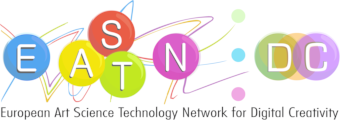Our study addresses legal questions in relation to the compatibility of the blockchain technology in the Copyright and Contractual Law norms. Within the frame of our research we conducted an empirical survey to understand the knowledge and position of Creative Content Industry to the application of the technology in Greece. Key comments on the survey results are included.
------
Blockchain is an information management system that enables secure, transparent, immediate and automatic transactions without high costs. The technology is applicable to any business sector, including creative content market which has been transformed by the unauthorised exploitation of the works in the "Information Society", leading rightholders to lose control over their works. Blockchain, initiating the "Internet of Value" era, aims to reshape the business world and regulate transactions over the Internet, reanimating therefore the relevant market.
The technology presents two qualities, rather important for the Copyright market: a) it operates as a “ledger”, a database, where encrypted information is stored and interconnected (such as information on the creator or co-authors, the rightholders, the type of the transaction etc.), and b) it contains pieces of software with contractual terms, operating as “smart contracts”, permitting the automatic registration and execution of an agreement (e.g. time of execution of the contract, registration of intellectual property rights). These two characteristics have the potential of giving the power back to the rightholders, by regaining control over the exploitation of their works, i.e. the transaction involving cultural content.
Having that in mind, blockchain can act as a smart register for Copyright, where the rightholders of the works, as well as the transactions related to the specific work, are recorded, allowing the conclusion of “smart contracts”. The latter permits the direct calculation of the remuneration due for the use of the work, the immediate payment in an open and transparent manner, as well as the detection of any copyright infringement.
Blockchain can, therefore, improve market failures, such as lack of control over the actual use of works and the inexistent or opaque payment for that use. In a nutshell, blockchain renders technological measures effective, in the sense that it allows not only the protection of the works, but also control over their use.
However, it seems that that the use of such technology could eventually lead to the addition of a new player in the exploitation of the works, the one controlling the transaction. There seems to be an equivalent to what happened in the Information Society which in the end permitted the emergence of platforms and intermediaries that focus on increasing their income permitting the low or no cost use of the existing works, without investing to the creation of new works. Given that it is difficult for a rightsholder to organize individually in order to manage and exploit his/her works, it seems rather probable that he/she will be forced to join a formed structure permitting the use of such infrastructures to enable the exploitation of his/her works and/or transaction.
Within this context, our study focuses on whether blockchain could eventually serve as a pragmatic solution to Cultural Industry’s problems and deals with legal questions surrounding blockchain and Copyright Law.
Our research is a combination of theoretical study and empirical research. The theoretical part examines matters related to the compatibility of the technology with Copyright Law searching for potential gaps in the standing legislation, as well as its possible application in the relevant market. The empirical research aims to help us reach a conclusion on the perception of the Greek Cultural Industry about blockchain, through a survey that was launched in Greece mid-march 2021 and served primarily as a research vehicle to gain greater insight into the attitudes of the local market towards the possible adoption of blockchain technology; The survey is addressed to participants covering a wide range of the Cultural Industry sectors and involves queries on the participants’ level of knowledge on blockchain, their perception as to the advantages and disadvantages of its application and their position as to the application of the blockchain technology in Cultural market.
In this paper we aim to present our approach on the legal issues arising from the operation and use of blockchain, as well as our first conclusions drawn from the above empirical research. Hence, we are convinced that this Conference is the right place to present our findings and have a fruitful dialogue with the participants.
Back
“Reflections: Bridges between Technology and Culture, Physical and Virtual”
is supported by:






